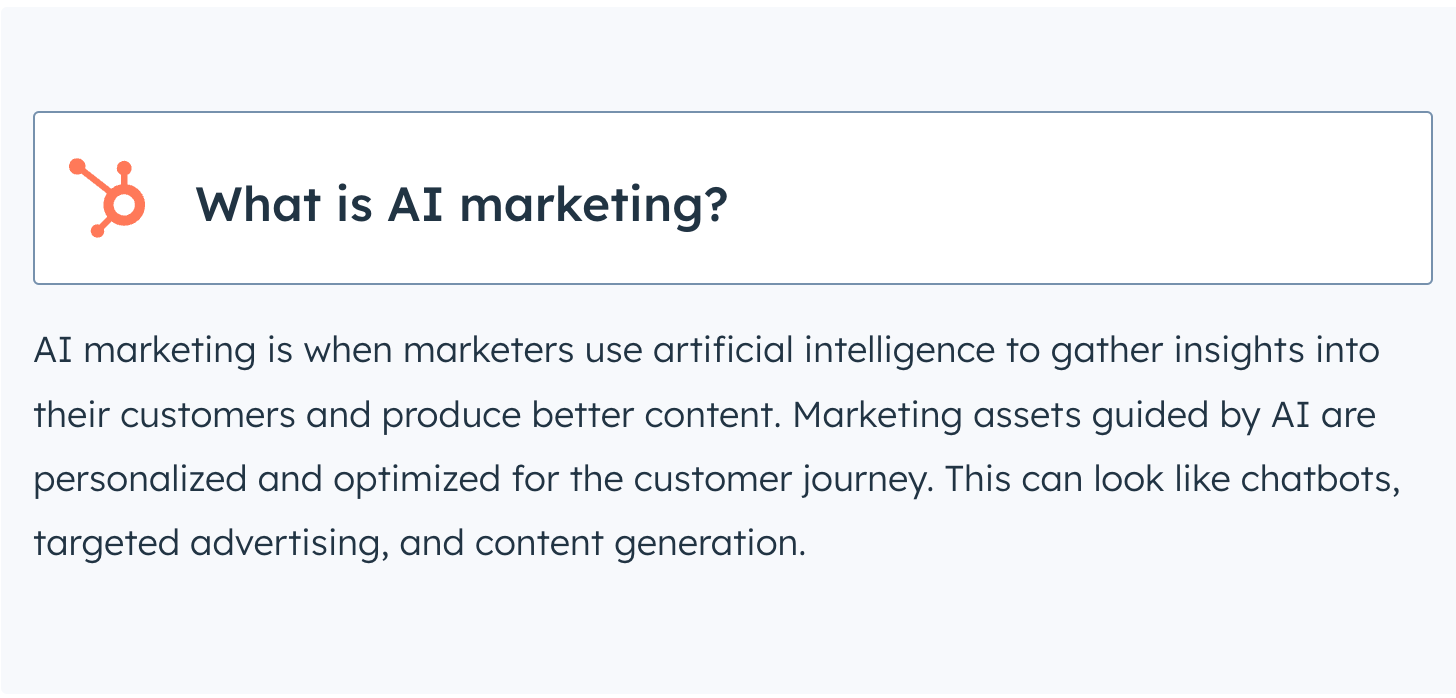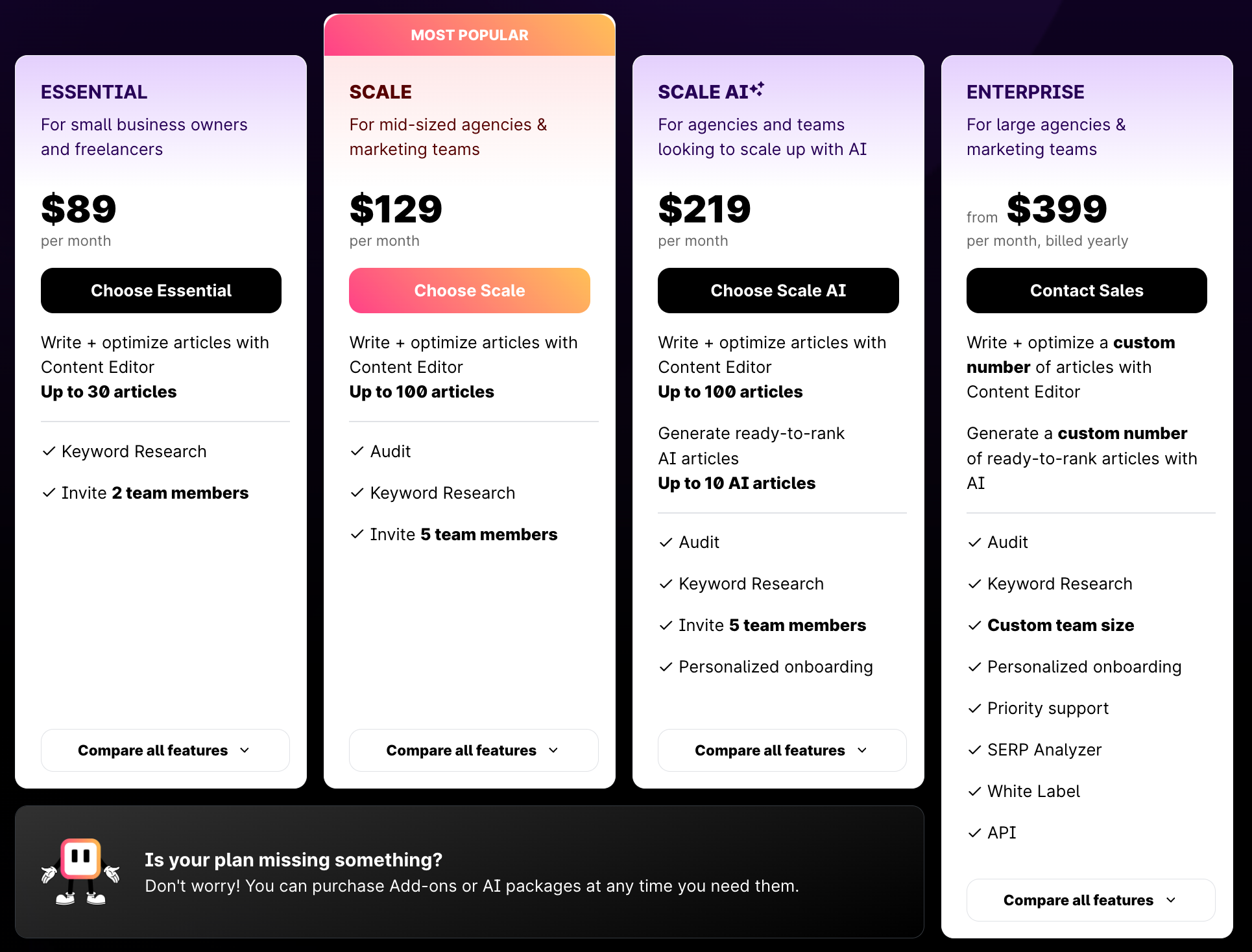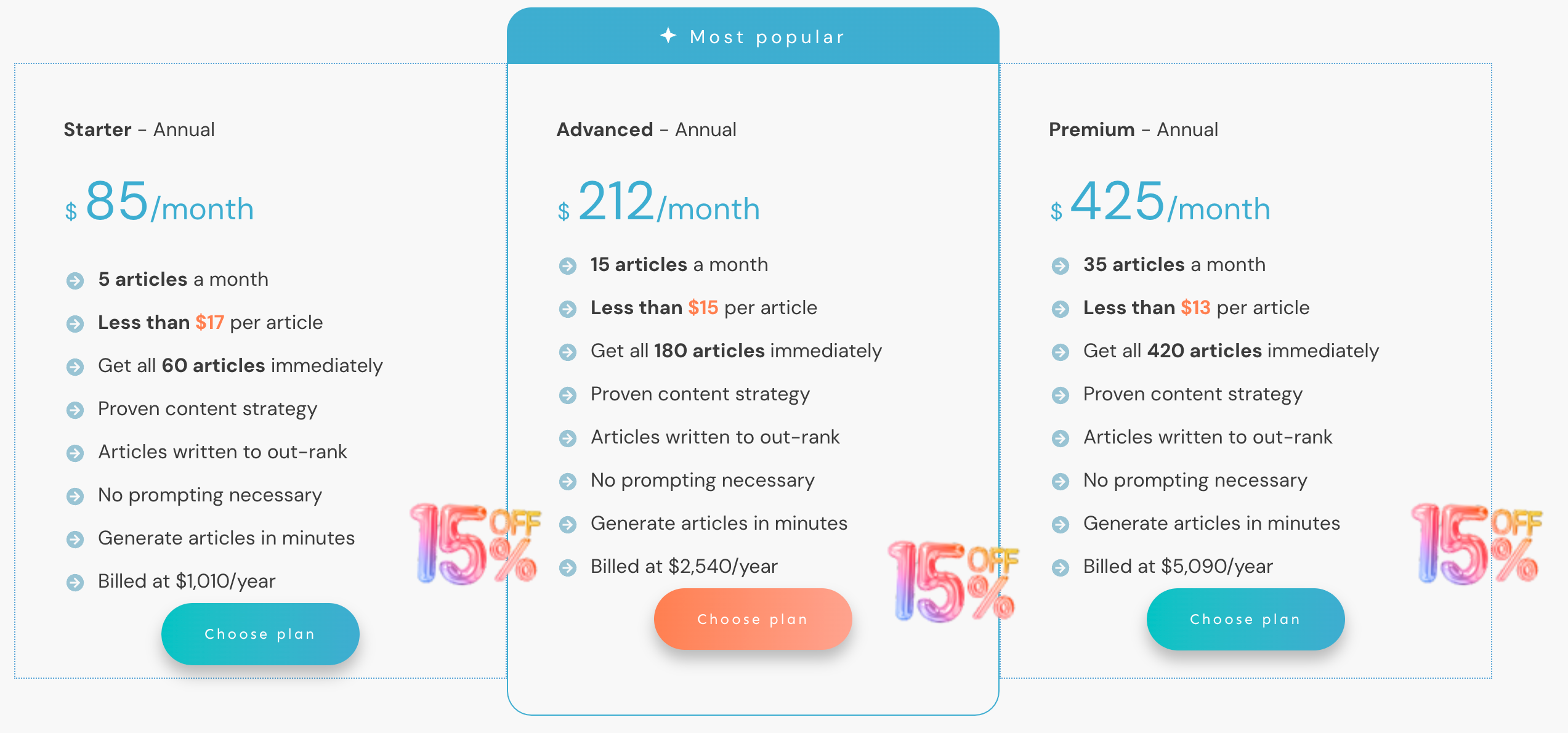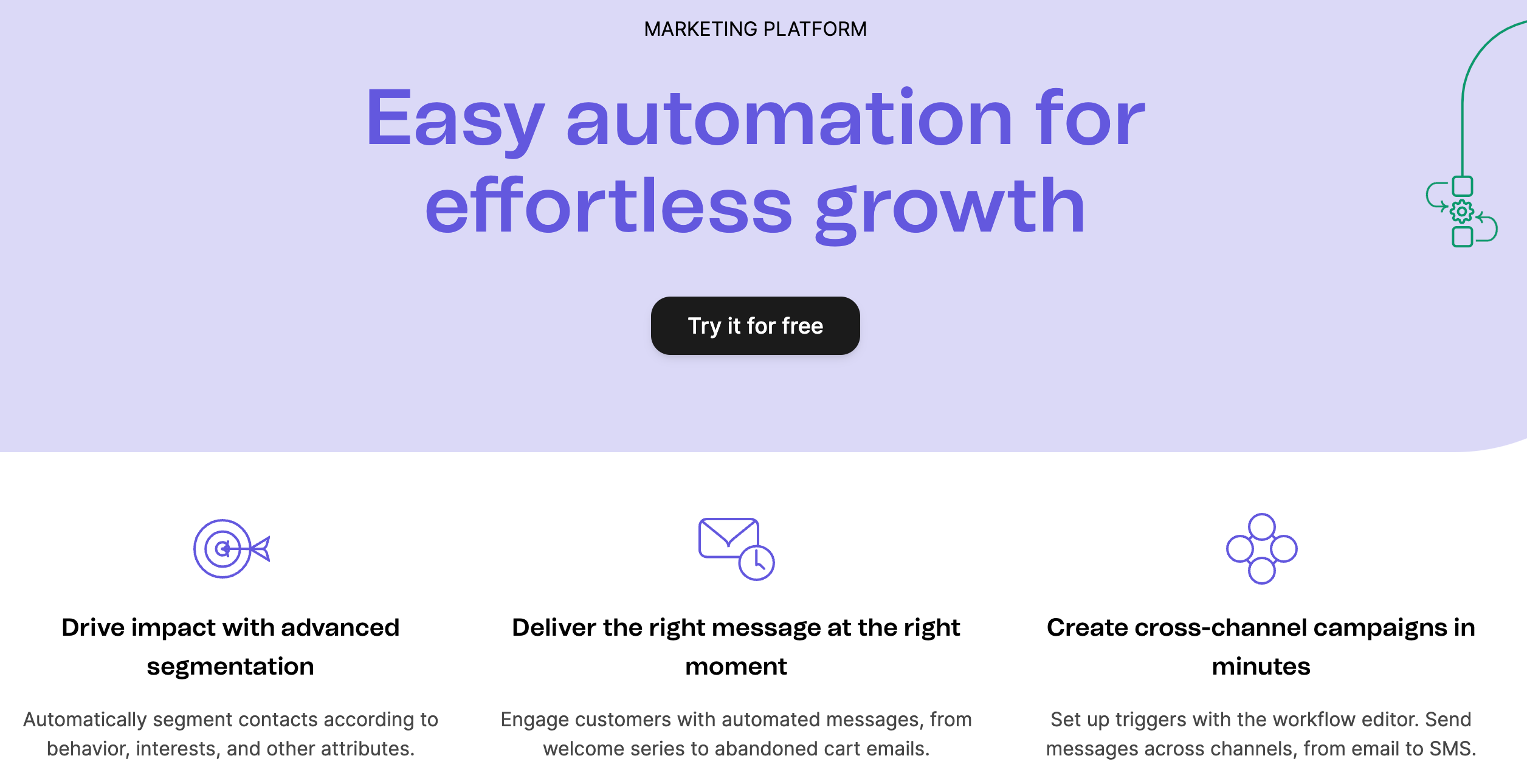Published on: April 26, 2023 Updated on: February 15, 2024
AI Marketing for Small Businesses: Optimize Your Campaigns
Author: Inge von Aulock

Many small business owners are skeptical of AI marketing tools or feel it’s something only large corporations can successfully deploy. Is that perception valid? Probably not. Some powerful AI marketing solutions can enable small businesses to achieve profitable marketing results with reduced overhead.
Benefits of AI marketing for small businesses
Using any new business tool involves a learning curve and, inevitably, some teething problems. AI is no different. Small business owners are understandably skeptical of whether the perceived benefit of AI marketing tools is worth the upfront effort and cost.
Some early adopters of AI may have found themselves pushed towards considering AI marketing tools rather than seeking them out willingly at first.
As small businesses move their marketing efforts away from conventional platforms, they find that they either have to employ skilled staff or outsource their marketing function. The challenge of running a small business makes neither of these options desirable.
Once AI marketing tools are properly integrated into a small business, it immediately frees up resources. The creative elements, testing, analysis, and response to market changes can be achieved without employing more staff or outsourcing to expensive consultants.

Use cases of AI in marketing
Here are a few examples of the leverage AI marketing tools can offer small businesses.
Ad copywriting
Writing engaging copy is both a science and an art. A snappy slogan or the right trigger words can make the difference between a customer taking action or scrolling past an ad.
AI copyrighting tools can use Natural Language Programming (NLP) and Natural Language Generation (NLG) to create multiple variations of ad copy that are designed to elicit the desired customer action.
Many of these AI tools can be trained to keep ad copy brand consistent. This results in AI-generated ad copy that uses language and phraseology that stays aligned with the company brand and sounds consistent to potential customers.
By connecting your ad accounts to the AI tool, the click-through rate (CTR), conversion rate, and level of engagement allow Machine Learning (ML) to understand what works and what doesn’t. The ad copy can then automatically be tweaked to maximize these criteria.
Ad creative
AI tools can create hundreds of ad creatives, like an image or video, in seconds. After defining an audience and an objective, AI ad creative generators can produce custom graphics focused on delivering the marketing objective.
By connecting ad accounts to AI tools, the ad performance feedback allows the tool to refine the images and layouts of the ads to optimize for conversions.
As different social media platforms have different layout and dimension requirements, these AI tools can save hours of painstaking reformatting of graphics.
Ad targeting
Conventional online advertising involves defining an audience and then hoping that the likes of Google or Facebook find individual targets within that audience that will convert.
With AI ad targeting, audiences can be automatically defined and refined in a fraction of the time.
AI also allows for hyper-targeted ad campaigns where copy, text, and time of ad delivery can all be tailored specifically for an individual within an audience, as opposed to a more broad approach.
Smart bidding
Most online advertising platforms use an auction-based cost approach. Advertisers enter their maximum bids and budgets, and the ad platform auctions an ad placement opportunity to the highest bidder.
Ad platforms like Google have AI-driven Smart Bidding options that advertisers can use. Instead of setting a specific bid price for keywords, an advertiser can define the maximum they want to spend per conversion.
The Smart Bidding tool will then vary the maximum bid based on the likelihood of achieving a conversion.
AI-Powered A/B testing
Making a small tweak to the copy, layout, or even colors on your landing page can have an impact on your conversion rate. Running A/B tests, a popular way to research user experience, can help you see which of those subtle changes are actually having an effect. But running A/B tests can be labor intensive.
AI-driven A/B testing tools can automate the process and make faster and better decisions on the fly. These tools take the initial headlines, copy, and calls to action and then create and test variations of these.
Once a statistically significant difference is measured between variations, the AI learns what works best and optimizes the structure of the landing page further. Using GPT-3 enables these tools to try multiple variations of text with wording based on data fed back from user interactions on the landing page.
While these tests are referred to as “A/B testing,” these AI tools test multiple variations, not just two, at once. After a quick 10-minute setup process, the AI does all the heavy lifting and delivers a landing page laser-focused on conversions.
Automated market research
Old-school market research involved surveys with marketing teams crunching the numbers to try to determine market trends. AI market research tools can process huge amounts of data from online chats, video views, shares, posts on social media, and many other sources.
Processing all of this data almost in real-time means that marketing teams are alerted to trends in their markets as they develop. This gives them a huge advantage over their competitors that aren’t using these tools.
Consumers are the best source of information for new product development. AI can trawl through thousands of reviews, online mentions, or even discussions where people ask for advice or product recommendations. This feedback gives marketing and product development teams insights into exactly what their customers want in the next version of their product.
Social media automation
Managing social media marketing can be a full-time job. Coming up with new content for Facebook or Instagram posts and tweets and publishing them takes up a lot of time.
AI social media tools can generate a month’s worth of social media content in seconds. These posts can be scheduled to post to the respective platforms automatically. The tool can monitor the engagement and feedback on social media posts to see what resonated with the target audience and what didn’t.
A tool like GPT-3 combined with ML can then use this feedback to refine the content and timing of future posts to optimize engagement.
AI marketing tools
Now you know how to use AI for small business, you need to know what tools can get you started. Luckily, there are hundreds out there. But let’s look at the top X For now.
Surfer SEO
Your digital marketing campaigns will need to include long form content designed to rank on Google SERPs (search engine results pages). To do this, you need to consider search engine optimization (SEO).
Surfer can help you do this with the following features:
- Keyword research: By feeding this tool your primary keywords and phrases that your business focuses on, you can generate dozens of content clusters and keywords that you can rank for to gain topical authority.
- Generate articles: If you’re short on time or have a small team, then Surfer can completely generate content for you from start to finish in just a few clicks. This AI content will be optimized for search engines which can help you increase brand awareness and conversions.
- Editor: If you’ve got time to write your own content for your marketing campaigns, then you can use Surfer’s editor. This analyzes the top-ranking pieces of content on Google and advises you on how to rank. This means you’ll get a list of keywords, an ideal word count, an ideal number of images, and headline ideas.
The varying price plans make this a fantastic option for small businesses trying to kickstart their digital marketing efforts. Below you can see the full breakdown.

Penfriend
Penfriend is new to the AI scene. It’s a tool that claims to generate the most human-sounding artificial intelligence yet. Similarly to Surfer, Penfriend focuses on long form content as your marketing strategy, and it can generate complete articles that are on brand and search engine optimized in seconds.
Penfriend are open and honest about the quality of the content produced. While the articles are well researched, engaging, and well written, they still advise you to add a human touch here and there to personalize it to your audience.
Alternatively, you can use this artificial intelligence tool to generate outlines for your articles. This will help you focus your marketing strategy and give you a head start in the writing process.
Why not give it a try? You can get your first three articles free if you need some convincing! Below are the three pricing plans and what they include:

Brevo
Small business marketing strategies need to focus on gathering customer data in order to personalize their content. A great way to do this is through email marketing. However, this can be expensive and time-consuming. Luckily there are plenty of AI-powered marketing tools focused on streamlining your email marketing efforts. One of these is Brevo.
Out of all the email marketing tools, this one seems to have the most features to improve customer engagement.
Brevo’s automation feature makes it easy to create personalized marketing campaigns. The artificial intelligence can analyze customer data and segment your audience, sending the right people the right content at the right time.

Conclusion
Navigating the huge array of AI marketing tools can be intimidating. Small business owners need to be able to differentiate between novelty and utility. Some tools may work well for one type of small business but not for another. There are some really good free online AI courses that help small business owners get a better understanding of what AI tools are available.
There’s no need to become an expert in AI to be able to use AI marketing tools effectively. It is important, though, to understand what these tools can do and how they can free up marketing resources in a small business. If the use case is identified for a particular AI app, then the initial investment of time and money is often quickly justified by improved conversions and freed-up resources.
Inge von Aulock
I'm the Founder & CEO of Top Apps, the #1 App directory available online. In my spare time, I write about Technology, Artificial Intelligence, and review apps and tools I've tried, right here on the Top Apps blog.
Recent Articles

Microsoft servers are down. Your business grinds to a halt. Panic sets in. Stop. Breathe. You’ve got this. This guide gives you 7...
Read More
As a business leader, you’re always searching for ways to stay ahead of the competition. What about AI in marketing and sales? In...
Read More
Struggling to keep up with the competition in 2025? You’re not alone. Small and medium enterprises (SMEs) are facing a rapidly evolving business...
Read More